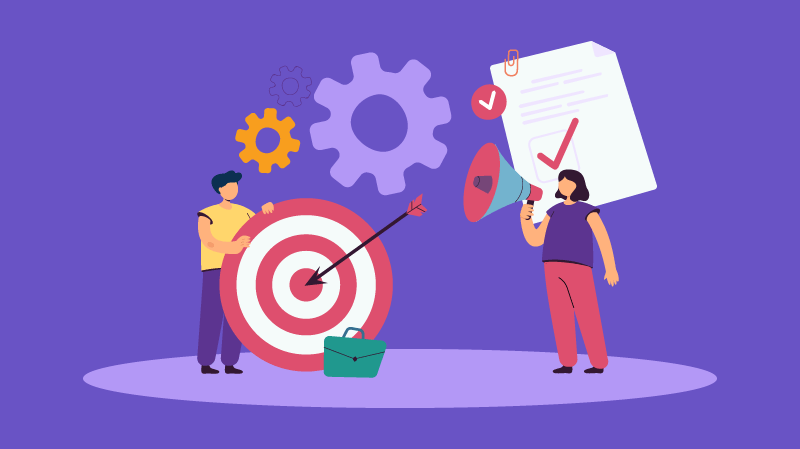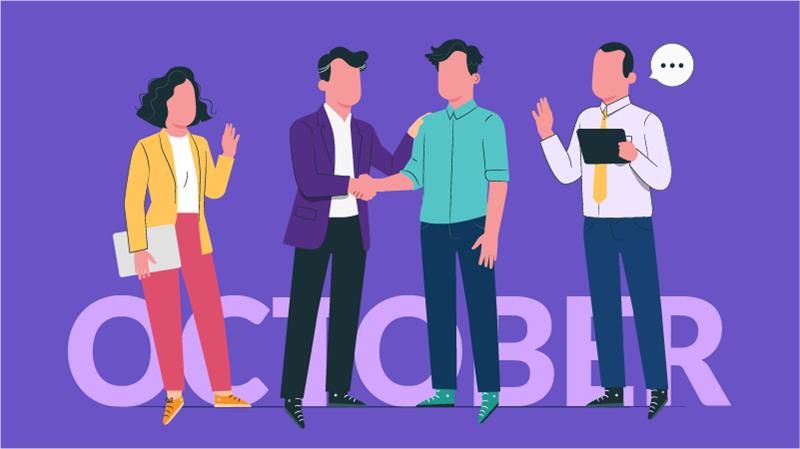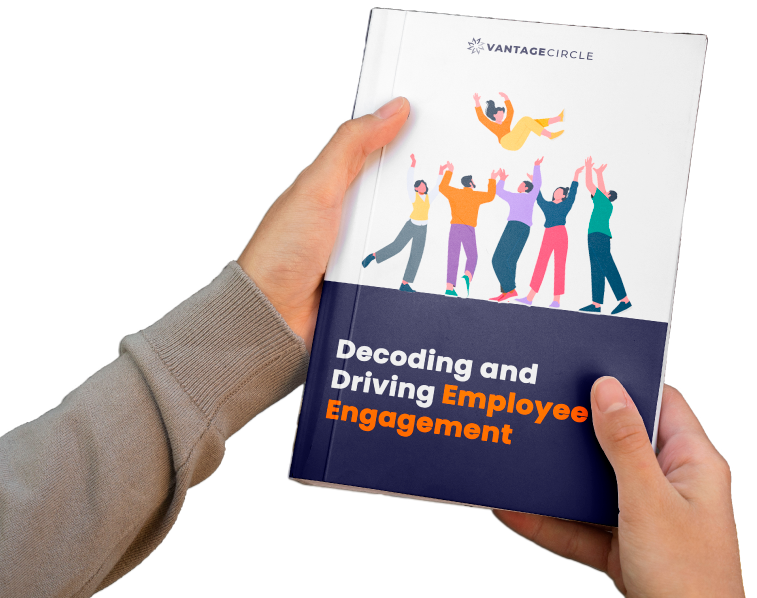AI In Employee Engagement: Transforming Workplace Dynamics

A Global Employee Recognition and Wellness Platform
94% of business leaders agree that AI is crucial for success. A whopping number of leaders having such faith in Artificial Intelligence (AI) is no joke.
What’s equally reassuring is that 74% of business leaders consider HR a key player in driving business outcomes.
Now, if AI is key to success and HR drives business outcomes, what happens when they come together?
The answer lies in AI empowering HRs to rethink how they connect with employees. AI can effortlessly streamline routine processes and assist HRs in designing better employee engagement strategies. It also has the potential to make employee engagement smarter, more personalized and impactful.
So, in this blog, we’ll understand in-depth the role of AI in employee engagement. And how it can transform workplace dynamics.
How AI is Revolutionizing Employee Engagement?
1. Personalization of Employee Experience

Forbes, in one of its articles, highlighted that Talent Acquisition experts across the world see the most significant opportunity with Gen AI in,
-
Automating repetitive tasks – 74%
-
Sourcing candidates faster- 67%
-
Engaging better with candidates- 59%
And why do Talent Acquisition experts believe so?
Because the moment a new employee steps into the organization, AI-powered tools take on the responsibility to elevate their experience. It can streamline the onboarding process and help you identify career growth opportunities.
At the same time, it gathers feedback to refine hiring practices. All of this aims to continually improve the experience for future hires.
2. Real-time Feedback and Recognition
Gone are the days of waiting for annual reviews. Feedback and recognition can now happen in real-time with AI in the picture.
AI tools can analyze performance and provide instant, constructive feedback. Additionally, these tools can automate recognition systems. Basically, ensuring that achievements, big or small, don’t go unnoticed.
3. Well-being with Sentiment Analysis

Ever wondered how your employees feel?
AI-powered sentiment analysis can help you find out. These tools analyze surveys, emails, and even chat messages to understand their emotions behind the words. Now, looking at their language, tone, and patterns, they give you a clear picture of how engaged and satisfied your team is.
But surprisingly, it doesn’t stop there.
In fact, with predictive analytics, you can spot early signs of burnout or disengagement as well. This helps HR teams take action early, ensuring employees feel supported and stay motivated.
Want to know how your employees really feel?
With Vantage Pulse’s AI-driven Sentiment Analysis, you can go beyond numbers to truly understand their emotions. It’s your key to boosting engagement, morale, and retention—effortlessly!
Key Applications of AI in Employee Engagement
Everyone likes a workplace where work feels less like a grind and more like a rewarding journey. AI has the potential to make that work.
But now, you may be wondering “How?”
Well, let’s explore.
1. Virtual Assistant and Chatbots
You can bid farewell to endless phone calls and frustrating help desk tickets with the help of AI.
It’s no exaggeration if we find these chatbots like a friendly knowledgeable colleague available 24/7.
Need to book time off? Just ask the bot!
Confused about company policy? The bot can quickly provide clear answers.
Want to enroll in a training course? The bot can guide you through the process with ease.
These bots are no less than a blessing when it comes to saving time and making workday smoother.
2. Personalized Learning and Development

Who wouldn't want a personal trainer for their career?
You’ll be interested to know that AI can step in as your personal career coach.
AI can analyze your skills, identify areas for growth, and recommend tailored learning paths.
For instance,
AI can suggest relevant courses, certifications, and even connect you with mentors who can help you reach your goals. AI can pinpoint your weaknesses and provide targeted resources like interactive tutorials or personalized coaching.
Do Give a Read:The Ultimate Guide to Employee Development in 2025
3. Automated Performance Management
Traditional performance reviews can feel a bit outdated. AI offers a more modern, objective approach.
AI tools can analyze your work performance data to provide regular, objective feedback. In fact, it can automatically identify and reward top performers, boosting morale and encouraging continuous improvement.
With AI-powered performance management, you always know where you stand and have a clear path for growth.
4. Workflow Automation
Let's be honest, some tasks are just plain boring. But AI can take care of the tedious stuff, freeing you up for more creative and fulfilling work.
Artificial Intelligence can help you prioritize your inbox and even draft responses to routine messages. Basically, saving your time, energy and reducing errors.
Benefits of Using AI
AI has several benefits. no wonder it's the hit of the hour. Even in the space of employee engagement. Let's know how:
1. Enhanced Personalization
Imagine walking into work and finding a system that truly gets you. That’s what AI brings to the table. For you, it can tailor onboarding processes to customize career development plans. It can transform generic workplace interactions into deeply personalized experiences.
2. Improved Productivity and Efficiency

No one enjoys being bogged down by repetitive tasks. Fortunately, AI steps in to automate routine workflows, freeing up time for employees to focus on meaningful, creative work.
It simply streamlines workflows and reduces human error.
3. Boosted Employee Satisfaction and Well-being
Ever wished for immediate feedback or recognition? With AI, it’s no longer a dream. AI tools analyze performance in real-time, offering constructive feedback and even automating recognition for achievements.
But it doesn’t stop there! AI-powered sentiment analysis can identify signs of stress or disengagement. It ensures employees feel supported before issues escalate. When employees know their well-being is a priority, job satisfaction naturally soars.
You May Also Like to Read:10 Great Ways to Make Employees Feel Valued at Work
4. Data-Driven Decision-Making
Making informed decisions is easier when you have data to back it up. AI’s predictive analytics offer insights into employee engagement trends. It helps HR teams identify potential challenges before they arise.
Take this for an example,
AI can detect patterns in absenteeism or performance dips. With that data, you can take proactive measures to improve the performance of low-performing employees.
Now that we’re aware of the benefits, we also have to know the downsides of AI. Here are some of them.
Challenges and Ethical Considerations in Using AI for Engagement
But AI is not free from challenges. It has some downsides too. Here are some of it:
1. Privacy and Security
With great power comes great responsibility.
In AI’s case, that means protecting employee data. While AI collects vast amounts of information, it’s crucial to ensure this data is handled securely and transparently.
Your employees may want to know:
-
What data is being collected?
-
How is it used?
Addressing these concerns builds trust and reassures your team that their privacy matters.
2. Transparency and Trust
AI shouldn’t be mysterious.
Honestly, Employees are more likely to embrace AI when they understand its role and limitations. Clearly communicating to your team members how AI tools work. And how they benefit employees goes a long way in building trust.
3. Responsible AI and Bias Mitigation
You must know that AI is only as unbiased as the data it learns from. Simply put, ethical implementation is key. So, to prevent unintentional discrimination, your organizations must actively monitor and refine AI systems.
AI should enhance fairness, not perpetuate bias. Responsible use ensures AI becomes a force for good in the workplace.
Best Practices for Implementing AI in Employee Engagement
Implementing AI in employee engagement can feel like a big leap, but with the right approach, it can lead to incredible results. To make the transition smoother and more effective, it’s important to focus on thoughtful, strategic steps.
Here are some best practices to guide your journey:
1. Start Small and Scale Up
I am sure you must’ve heard this- “Don't dive in headfirst. Test the waters.”
Start by introducing AI in specific areas like onboarding or performance reviews. It allows you to evaluate its impact and fine-tune processes before rolling it out across the organization.
2. Prioritize Transparency and Employee Trust
AI can feel intimidating. For many people it does.
So, to ease these concerns, openly communicate AI’s role, what data it uses, and how it benefits your employees. Trust us, when people know the why behind the what, they’re more likely to buy into the change.
3. Balance AI and Human Insights
AI can do a lot. But you’ll be happy to know that it cannot replace your intuitions. Your “human intuitions.”
Having said that, the best results come from blending AI’s data-driven recommendations with your empathy and judgment. After all, a bot can analyze patterns, but only a person can truly understand context.
4. Continuous Improvement through Employee Feedback
Just like any tool, AI isn’t perfect.
So, it’s your duty and moral responsibility to gather regular feedback from employees. You must know how new systems are working on them. Use their feedback to make adjustments and ensure the technology evolves alongside your team’s needs.
Listen to our Latest Podcast on: AI: Its Role and Implications for HR
Conclusion
AI is changing how we engage with employees, making work more personalized, efficient, and enjoyable. While there are challenges, like privacy concerns and ethical issues, we can overcome them by starting small, being clear about how AI works, and combining AI with human judgment.
The future looks bright with AI helping to create workplaces that are not just smarter but also more supportive and human. It's an exciting time, as AI makes it easier to make employees feel valued every day.

















